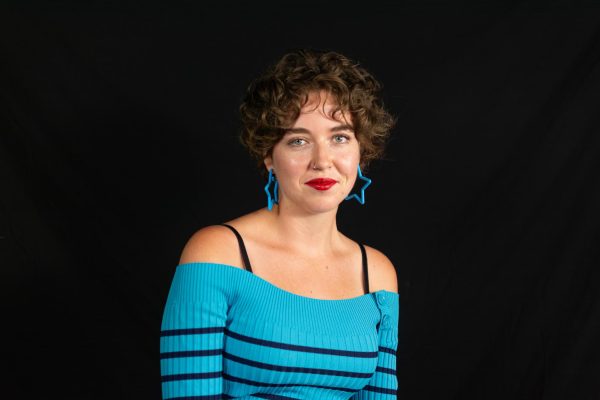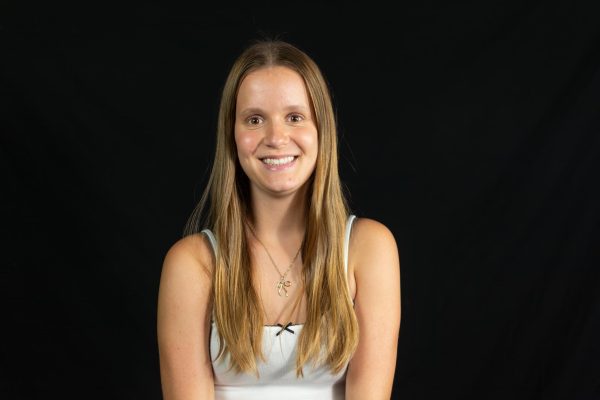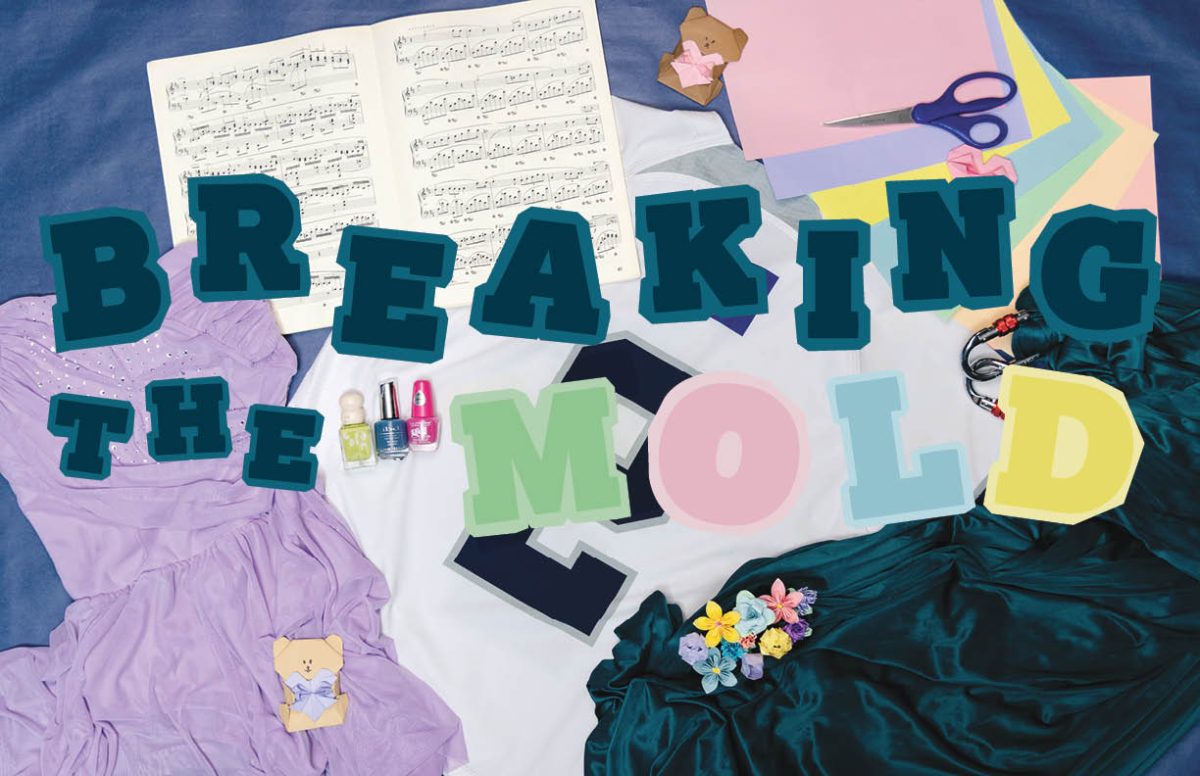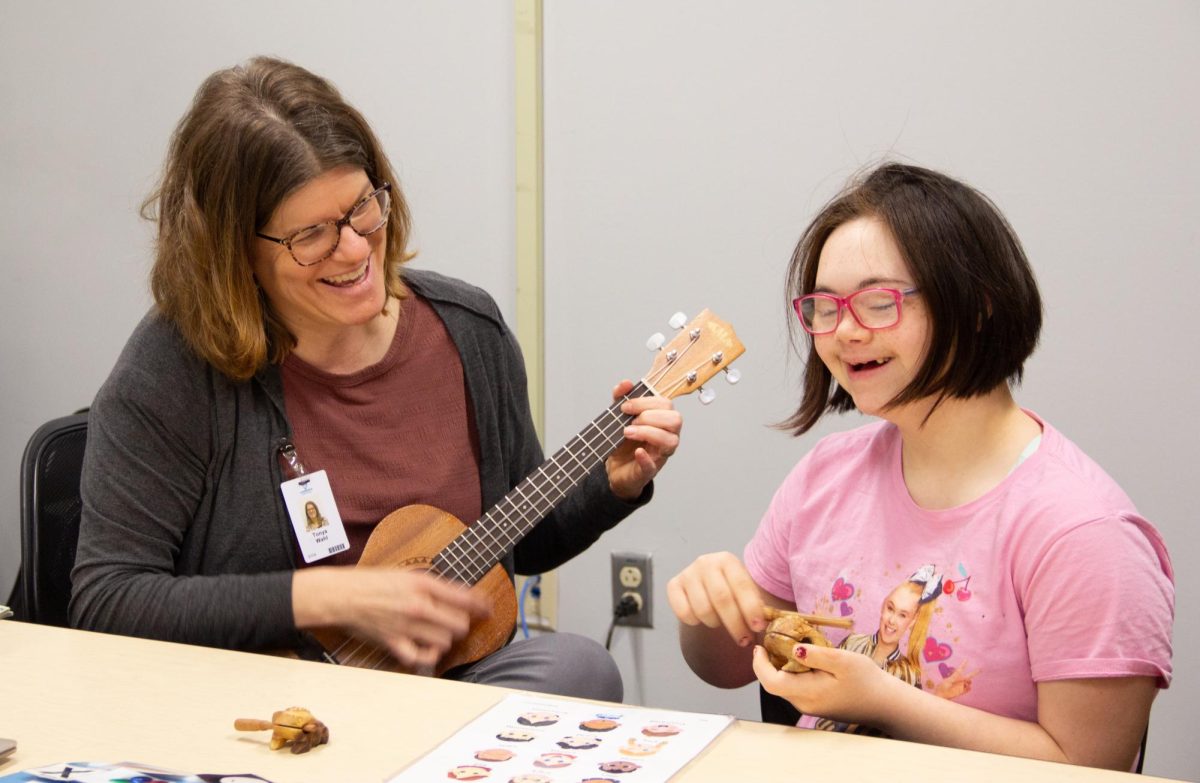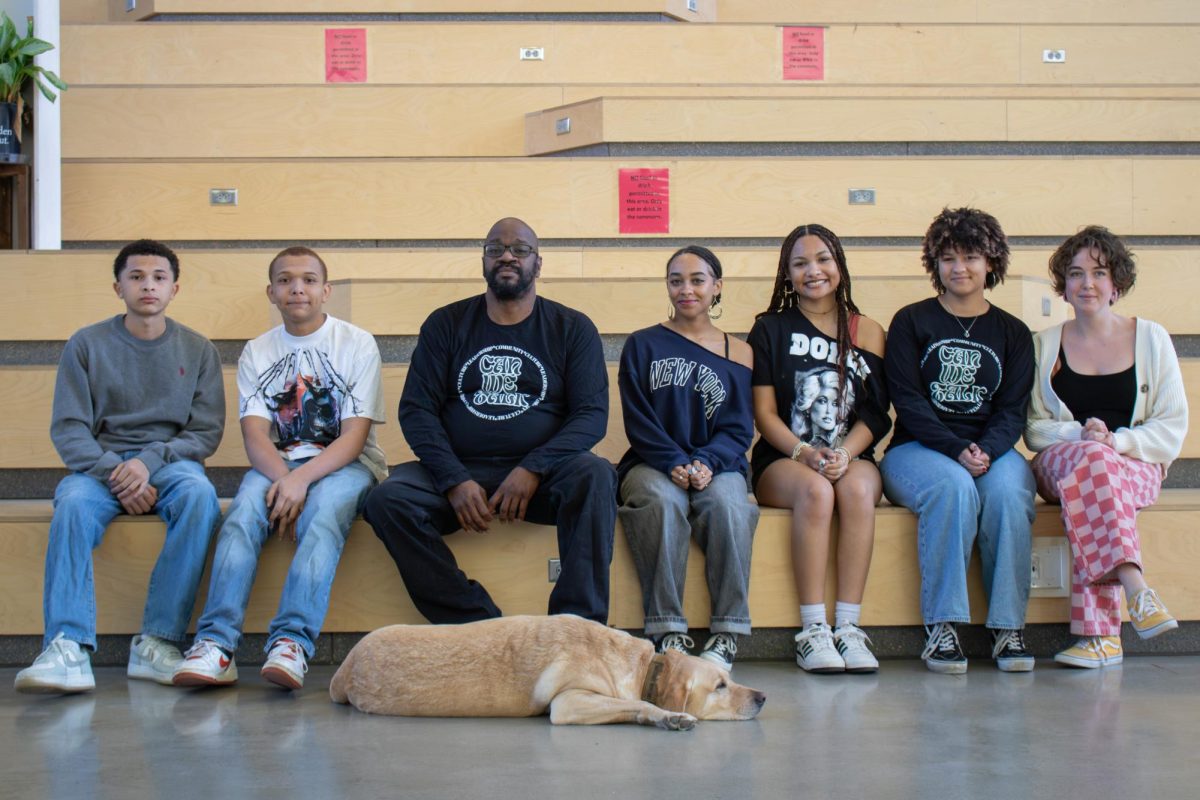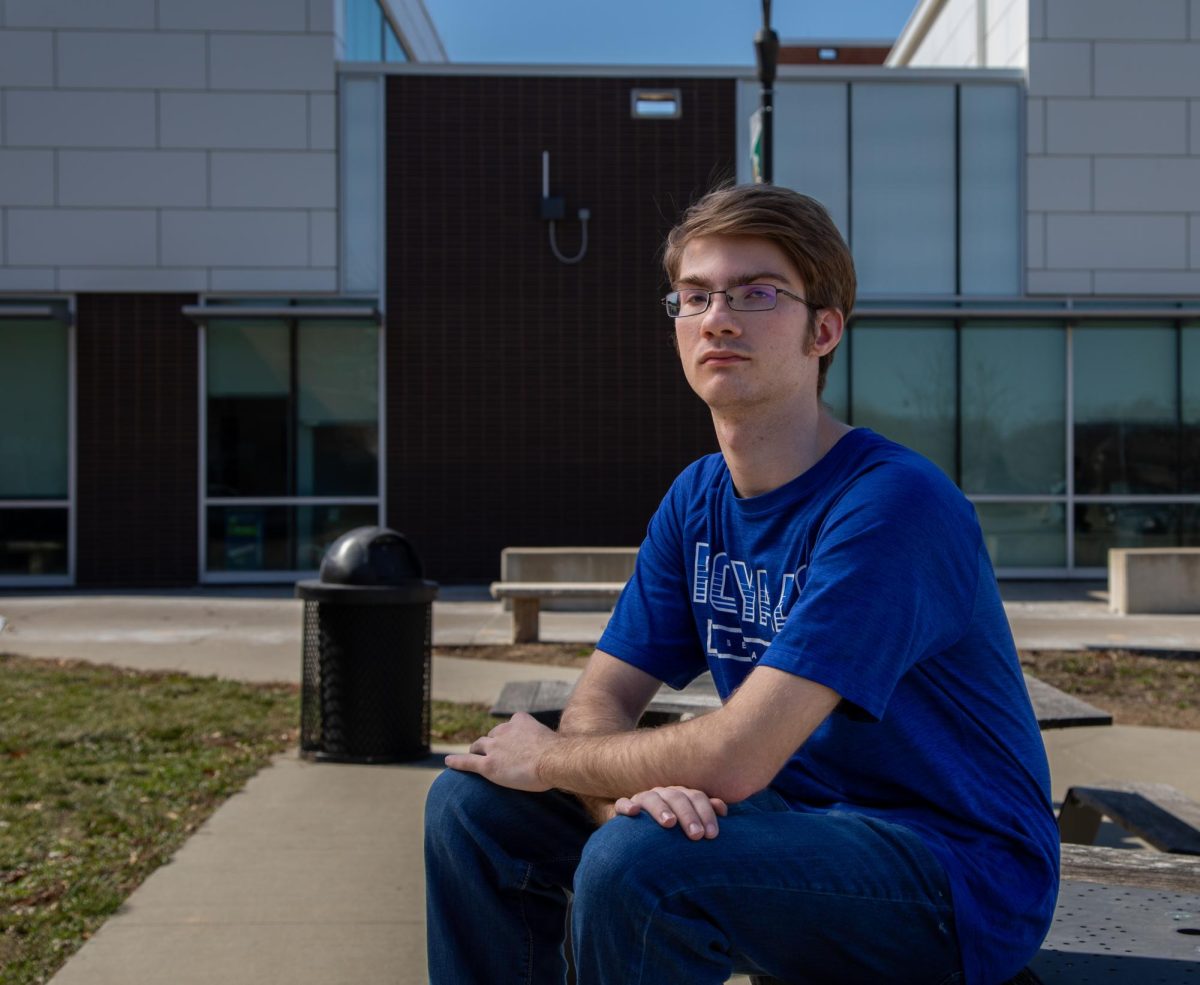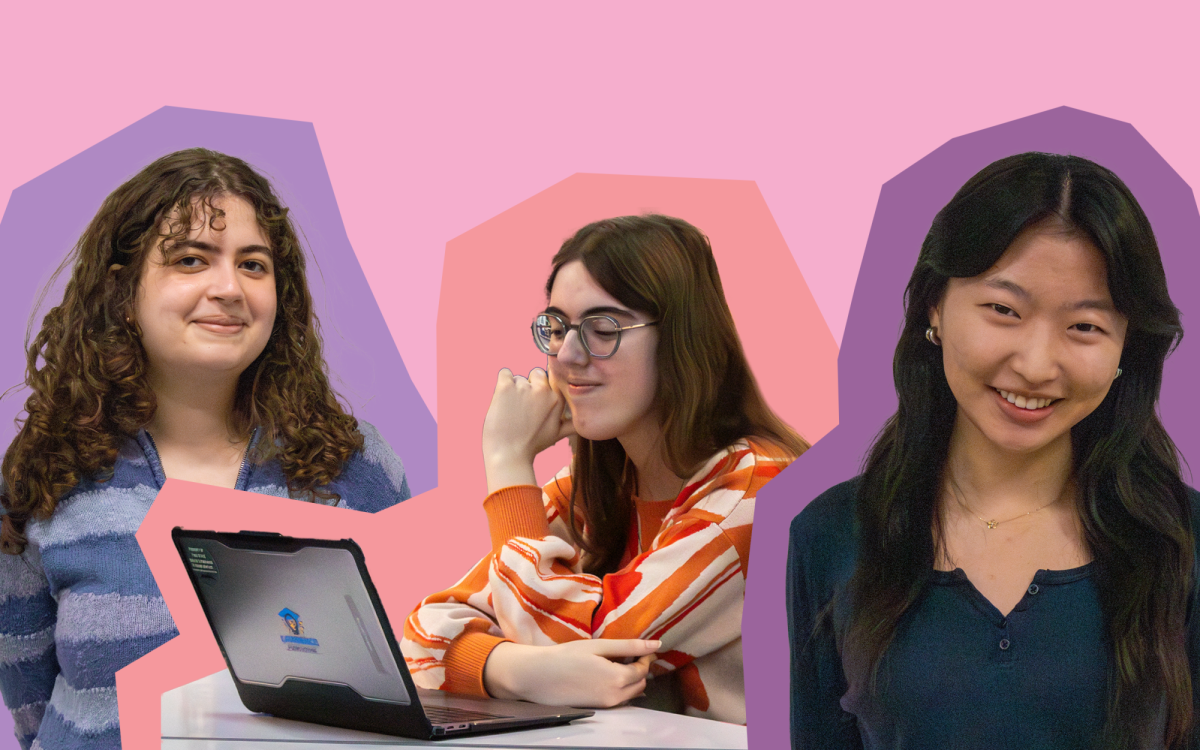While many students have yet to commit to universities and colleges across the country — awaiting decision letters, financial aid awards, scholarships and more — some students have already committed to more local institutions.
Committing to a community or junior college is one way senior Delaney Bruhns has found to mitigate concerns that traditionally delay or prevent students from committing to schools.
Bruhns, who plans on attending Neosho County Community College, said sports and affordability are her biggest pulls to community college.
“I wanted to go to college for softball, and [there  is] also the fact that it’s going to be way cheaper to be there on a sports scholarship,” Bruhns said.
is] also the fact that it’s going to be way cheaper to be there on a sports scholarship,” Bruhns said.
Bruhns said that the greater abundance of community colleges makes it easier to find a good fit — both in sports programs and scholarships.
Counselor Marc Conover said finances play a large role in the appeal of community colleges. Conover said that for students who are unsure what they want to study or know their career field doesn’t require a four year degree, a junior college might be the best choice.
“Maybe they don’t know what they want to major in. Instead of spending all this money at a four year college trying to figure that out, maybe they spend a year or two at community college,” Conover said. “There’s the pull of not every career needs four years of college. If there’s only certain things that you need, the certification or whatever it might be, a community college could be a better fit.”
Senior Cayman Cook, who will be attending Barton County Community College, discussed the unique community of junior colleges and the benefits of smaller class sizes.
“[Community colleges are] a lot smaller, so you know most of the people there. It’s a community,” Cook said. “You can get a lot closer with the teachers and a lot closer with everyone in your class.”
Since community colleges typically have smaller student bodies, Conover said community college can be a good transition for students to get introduced to the college experience and begin getting college credits before transferring to complete their degree at a four year institution.
“The transition to a two year college is just a step above high school. You’re getting college credits, and you’re getting your feet wet with college courses without jumping in full force,” Conover said. “If that jump to a four year college is intimidating, that transition might be helpful.”
Government teacher Jeff Haas, who attended Johnson County Community College, said he chose community college for affordability and location, among other factors. Haas also said that his experience at JCCC prepared him well to transition to a larger university.
“Part of [my decision] was that at that point, going to a four year college wasn’t really on my agenda, although as a distant plan, it was,” Haas said.
Haas, who completed his undergraduate degree at University of Kansas before attending Baker University for his masters, said that community colleges offer a unique teacher-student experience.
“One thing that sometimes happens at KU, is that the day to day teaching can get partially or almost fully outsourced to teacher assistants,” Haas said. “If you’re talking about just taking classes day to day, the instructors I had [at JCCC] were outstanding instructors, and they’re focused on teaching exclusively.”
Bruhns said that the smaller community of junior colleges allows for more extensive peer-to-peer and teacher-student relationships, adding that these are aspects of community college she is looking forward to.
“[Community college] will help me be more comfortable to ask questions, and get more 1-to-one time with my teachers,” Bruhns said. “I look forward to knowing a lot more people than I would going to a big school, and making new friends.”




